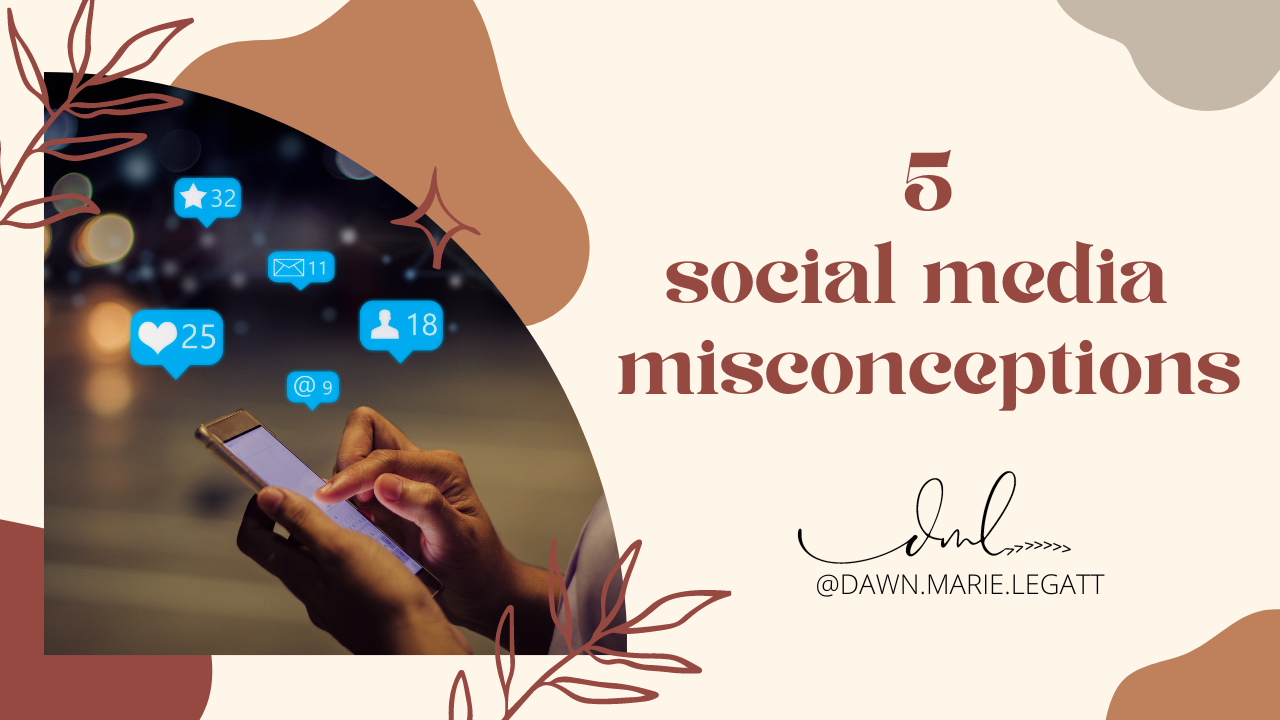5 Social Media Misconceptions
Jun 25, 2023
Whether we like it or not, social media has become an integral part of our lives, transforming the way we connect, share information, and interact with the world around us. 💓 However, like any technological advancement, social media is not exempt from misconceptions and misunderstandings. In this list, we will explore five common misconceptions about social media that often lead to misinterpretations and judgments. By debunking these misconceptions, we can gain a better understanding of the role and impact of social media in our lives. 🥳 (& its not always all that bad!)
1. Social media is solely for young people: One common misconception is that social media platforms are primarily used by young people. (& sadly, I no longer fit into the 'young people' category🤣😜) While younger demographics may be more active on certain platforms, social media usage spans across age groups. Older adults are increasingly joining social media platforms to connect with family, friends, and participate in various online communities.
2. Social media is a waste of time: Some people view social media as a frivolous or time-wasting activity. (ie: I have 4 teenagers - it can be a VERY big waste of time 🙄) But while it's true that excessive and unproductive use of social media can be detrimental, it can also provide numerous benefits. Social media can be a powerful tool for networking, staying informed, sharing knowledge, and promoting businesses or causes.😇
3. Social media represents reality: Another misconception is that people's lives on social media accurately reflect their real lives. 👎🏻In reality, social media often portrays a curated version of people's lives, highlighting the positive aspects and concealing the challenges and imperfections. It's essential to recognize that what is presented on social media may not always be an accurate representation of reality.
4. Social media fosters only shallow connections: Some believe that social media platforms only facilitate superficial interactions and hinder genuine relationships. While it's true that face-to-face interactions are crucial for building deep connections, social media can also play a valuable role in maintaining and strengthening relationships. It allows people to stay connected with friends and family across distances and can provide a sense of community and support.🥰
5. Social media is always harmful to mental health: While excessive use of social media or exposure to negative content can negatively impact mental health, it's important to note that social media can also have positive effects. It can serve as a platform for emotional support, connection, and inspiration. Additionally, social media has been used to raise awareness about mental health issues and promote resources for seeking help. The impact on mental health can vary depending on individual usage patterns and engagement with social media.
In conclusion, it is important to approach social media with a balanced perspective, understanding its potential benefits and limitations. Rather than succumbing to misconceptions, we should strive to utilize social media platforms responsibly and mindfully. Recognizing that social media is not exclusively for the young, can provide meaningful connections, and does not always reflect reality allows us to navigate these platforms more effectively. Moreover, acknowledging that social media can have both positive and negative impacts on mental health encourages us to foster healthy usage habits. By dispelling misconceptions and embracing a well-informed approach, we can make the most of social media and harness its potential for personal, professional, and social growth.✨✨
Keep being amazing 💓💓
-Dawn
@Dawn.Marie.Legatt
